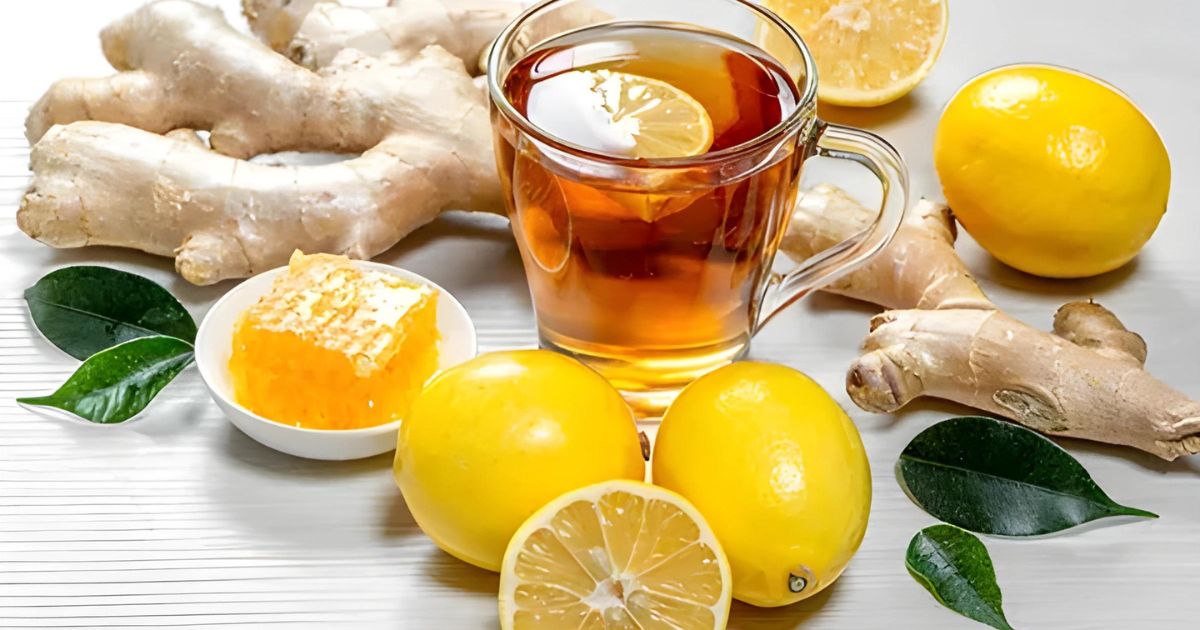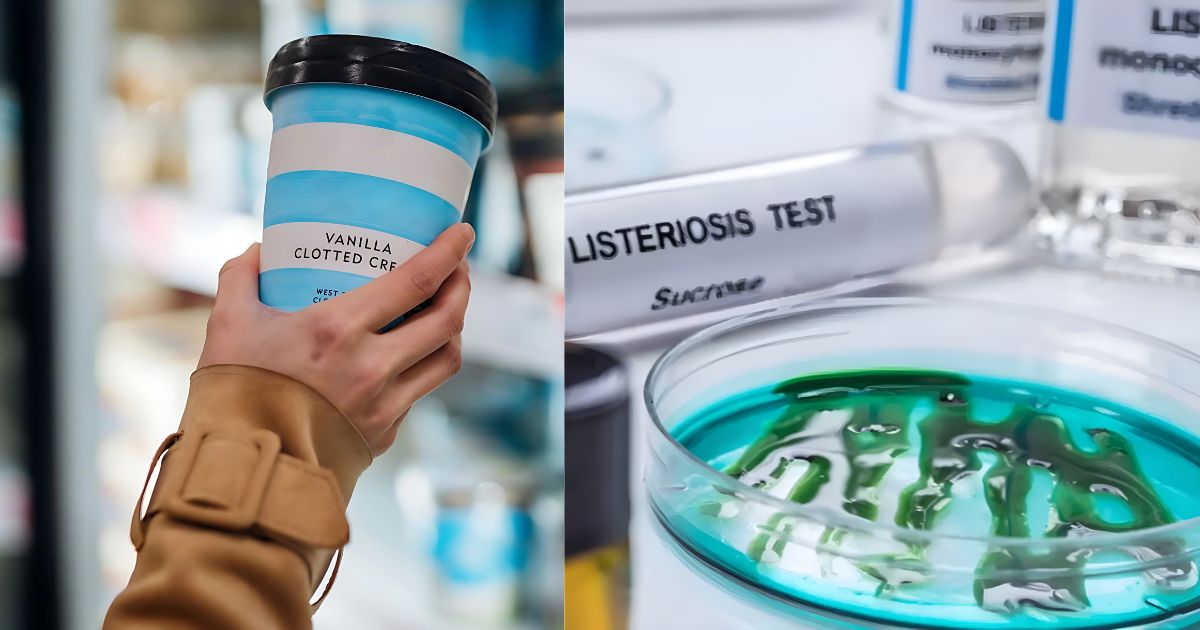The Health Benefits of Lemon Ginger Tea
Lemon ginger tea is a delicious and health-promoting beverage that is easy to prepare at home. This tangy tea combines citrus’s bright taste with ginger root’s spicy kick. Drinking lemon ginger tea regularly can provide various powerful benefits for your health and well-being.
Read More: Digital News Planet
What is Lemon Ginger Tea?
Lemon ginger tea is an herbal infusion made by steeping sliced ginger root and lemon in hot water. This caffeine-free tea has a distinctively vibrant, zesty flavor from the combination of lemon juice and ginger. While there are many variants, the basic lemon and ginger tea recipe calls for:
- 1-inch piece of sliced or grated fresh ginger root
- Juice of 1⁄2 a lemon
- 8 ounces of hot or boiling water
- optional sweetness, such as agave nectar or honey
You can change the ingredients to suit your preferences, increasing or decreasing the amount of ginger and lemon juice based on your desired flavor intensity. Many enjoy enhancing the base by adding ingredients like turmeric, mint leaves, black pepper, or sliced cucumber.

Potential Health Benefits of Lemon Ginger Tea
Drinking lemon ginger tea has been associated with numerous health-promoting effects. Here are some of the top wellness benefits you can expect to experience by sipping this potent beverage regularly:
May Aid Digestion
One of the primary traditional uses of ginger is as a digestive aid. The substances in ginger root promote a healthy digestive system by boosting the production of bile, stomach acid, and digestive enzymes necessary for food breakdown.
The citric acid from the lemon juice also stimulates the production of gastric juices, which support proper digestion. This makes lemon ginger tea an excellent digestif to enjoy after meals. Drinking this tea when you feel stomach discomfort can help relieve indigestion, bloating, gas, and nausea.
May Reduce Nausea and Vomiting
Ginger has long been used as a natural remedy for motion sickness, seasickness, morning sickness, and chemotherapy-induced nausea. The gingerol compounds found in ginger effectively reduce nausea, vomiting, and vertigo triggered by motion.
Sipping on lemon and ginger tea may provide relief from nausea. Pregnant women suffering from morning sickness may find this tea particularly helpful for curbing queasiness.
Contains Antioxidants
Both lemons and ginger contain various antioxidants and polyphenols that can boost your health. Lemon ginger tea contains healthy plant ingredients that counteract oxidative stress and free radicals in your cells.
The vitamin C in the lemon is especially effective at supporting immune function. Plus, the antioxidants in lemon and ginger tea can help lower inflammation.

May Boost Immunity
Combining vitamin C from the lemon juice and antimicrobial compounds from the ginger root makes lemon ginger tea an immunity-enhancing beverage.
Regularly drinking lemon ginger tea during flu season and winter months provides vitamin C to help prevent and shorten colds. The gingerol compounds in ginger tea also have antimicrobial effects against bacteria, viruses, and fungi.
Can Reduce Menstrual Discomfort
For women suffering from painful menstrual cramps, drinking lemon ginger tea may provide welcome relief. Ginger is as effective as ibuprofen at reducing pain and cramping during periods.
The gingerols help block the production of prostaglandins, which cause uterine contractions and discomfort. A few cups of anti-inflammatory lemon ginger tea around your period can soothe menstrual cramps.
May Improve Heart Health
Some research indicates that regularly consuming lemon ginger tea may boost heart health and lower high blood pressure levels. This is linked to ginger’s high antioxidant and anti-inflammatory activities.
Ginger compounds help reduce LDL cholesterol, while lemon juice increases HDL cholesterol. This combination helps reduce plaque buildup in arteries and enhances circulation. Drinking lemon ginger tea may support healthier blood pressure and cardiovascular function.
Can Help Detoxification
Lemon and ginger contain compounds that stimulate detoxification and promote healthy liver and kidney function. Lemon juice contains citric acid, which helps flush toxins and optimize enzyme function.
Ginger root also enhances circulation and contains minerals like chromium, magnesium, and zinc that filter waste products from the bloodstream. Enjoying lemon ginger tea supports natural detoxification.
How to Make Lemon Ginger Tea
Making refreshing lemon ginger tea at home using simple ingredients is easy. Here is a step-by-step guide to preparing lemon ginger tea:

Ingredients:
- a finely sliced 1-inch piece of fresh ginger root
- 1/2 lemon
- 8 oz water
- Honey or sweetener (optional)
Directions:
- Peel the ginger root, cut it into thin slices, or grate it. You can use a grater or zester for this.
- Pour the juice from half of a lemon into a teapot or mug. You’ll need about 1-2 tablespoons of juice.
- Stir the grated or sliced ginger into the cup of lemon juice.
- Heat the water to boiling, then pour 8 oz of hot water over the lemon juice and ginger.
- Give the tea five to ten minutes to steep. This infuses the water with the flavor and benefits of the ginger and lemon.
- Stir in honey or any other natural sweetener if desired. The amount will depend on your tastes and the tartness of the lemon.
- Strain the solids before drinking if you don’t want pieces of ginger in your tea. Enjoy hot!
You can modify the basic formula to your tastes. Some delicious additions include turmeric, mint, black pepper, cinnamon, or green tea. This simple lemon ginger tea only takes a few minutes to make and can be enjoyed hot or chilled.
Lemon Ginger Tea for Weight Loss
Drinking lemon ginger tea for weight loss may help in several ways:
- Boosts metabolism – The citric acid from lemon and ginger’s thermogenic properties can slightly increase the resting metabolic rate.
- Suppresses appetite – Ginger may help regulate ghrelin, the hunger hormone, reducing overeating.
- Aids digestion – Proper digestion prevents bloating and constipation that contributes to excess weight.
- Detoxifies – Lemon and ginger help flush toxins and reduce water retention.
Drink lemon ginger tea first thing in the morning and before meals to support weight loss. Combine with diet and exercise.

Lemon Ginger Tea Benefits Before Bed
Drinking lemon ginger tea before bedtime provides benefits like:
- Improves sleep – The gingerol compounds act as a mild sedative and antioxidant.
- Reduces stress – Ginger has adaptogenic properties that lower cortisol.
- Aids digestion can help relieve indigestion, bloating, or GERD after eating late.
However, ginger’s stimulating effects may make falling asleep difficult for some. Avoid too close to bed.
Lemon Ginger Tea Recipe for Weight Loss
For a metabolism-boosting lemon ginger tea recipe for weight loss, try:
- 1 inch ginger, grated
- Juice of 1 lemon
- Dash of cinnamon
- Pinch of turmeric
- 8 oz hot water
- Stevia to taste
Cinnamon and turmeric provide additional anti-inflammatory and antioxidant benefits that support weight management.

Lemon Ginger Tea Pregnancy
Lemon ginger tea pregnancy benefits include:
- Alleviates morning sickness and nausea
- Soothes digestion issues like bloating and constipation
- Provides vitamin C, magnesium, and zinc
- Settles uterine cramps and discomfort
It’s a safe, all-natural way to find relief from pregnancy-related nausea and discomfort. Avoid excessive amounts.
Potential Side Effects and Precautions
Lemon ginger tea is safe for most healthy adults when consumed in average food amounts. However, there are a few safety measures and possible adverse effects to be mindful of.:
- The citric acid from lemon juice can sometimes cause heartburn or aggravate acid reflux symptoms in sensitive individuals. Avoid drinking this tea before lying down.
- Ginger may interact with blood thinners by increasing the risk of bleeding. Consult your doctor before consuming ginger if taking anticoagulant medications.
- Excess ginger consumption can sometimes cause diarrhea or upset stomach, especially in higher doses. Drink moderate amounts and cease use if you experience diarrhea.
- Lemon may make symptoms worse for people with GERD. Monitor for increased heartburn after drinking lemon ginger tea.
- Due to its stimulating effects, avoid drinking ginger tea before bedtime, as it may disrupt sleep.
As with any supplement, it’s a good idea to consult your physician before adding lemon ginger tea to your diet if you have underlying health conditions or take medications that could interact.
Enjoying Lemon Ginger Tea
Here are some tips for making lemon ginger tea part of your daily routine:
- Drink a warm cup in the morning to start your day with a burst of flavor and nutrition. The tea may provide an energizing boost.
- Sip on chilled lemon ginger tea throughout the afternoon for a refreshing pick-me-up without caffeine.
- Brew a comforting mug of lemon ginger tea in the evenings to aid digestion after dinner. It makes an excellent post-meal digestif.
- For an immunity-enhancing beverage, keep a pitcher of lemon ginger tea in the fridge during flu season. Drink leisurely throughout the day.
- Bring lemon ginger tea bags or make a thermos to take this energizing and nausea-reducing tea with you when traveling.
Incorporate lemon ginger tea’s delectable and effortless taste into your everyday regimen for overall well-being. Drinking this anti-inflammatory tea regularly provides many benefits, from improving digestion to enhancing immunity. With its bright, spicy-citrusy flavor and many potential wellness advantages, lemon ginger tea is a nourishing beverage to add to your diet.
FAQs:
1: What is lemon ginger tea good for?
Lemon ginger tea aids digestion, reduces nausea, boosts immunity, increases alertness, and reduces inflammation. The combination of lemon and ginger provides vitamins, antioxidants, and anti-inflammatory compounds that promote health.
2: Does lemon and ginger reduce belly fat?
Lemon and ginger tea can help reduce belly fat and promote weight loss. The tea helps boost metabolism, suppress appetite, flush out toxins, and reduce water retention and bloating.
3: What is the best time to drink lemon and ginger?
The best time to drink lemon ginger tea is in the morning when you wake up and between meals. Drinking it on an empty stomach maximizes the absorption of nutrients. Avoid drinking it close to bedtime due to its energizing effects.
4: Is lemon ginger tea better hot or cold?
Lemon ginger tea can be enjoyed both hot and chilled. Drinking it hot provides the most relief for symptoms like nausea, congestion, or cramps. The cold tea is refreshing in warmer weather. Both provide similar benefits.
5: What is the disadvantage of lemon and ginger tea?
Potential disadvantages of drinking lemon ginger tea include heartburn, diarrhea, or upset stomach if consumed excessively. The citric acid may aggravate acid reflux. Ginger can also disrupt sleep and interact with certain medications.
6: Can I drink ginger lemon tea on an empty stomach?
Yes, you can safely drink ginger lemon tea on an empty stomach. This maximizes nutrient absorption. Some find the citric acid irritates an empty stomach, so add a squeeze of honey if it causes discomfort.
7: Is it OK to drink lemon ginger tea every day?
It is generally safe to drink lemon ginger tea daily. Up to 3 cups per day can provide health benefits. Too much may cause side effects like heartburn or dehydration. Listen to your body and decrease intake if it irritates.
8: When not to take ginger?
Steer clear of ginger if you take blood thinners, have a digestive obstruction, or have a bleeding disease. Stop ginger two weeks before any scheduled surgery. If you take ginger supplements and have any underlying medical concerns, consult your physician first.
9: Is it OK to drink ginger at night?
It’s best to avoid drinking ginger tea close to bedtime. Ginger’s stimulating and energizing effects can disrupt sleep. Drink ginger tea in the morning or early afternoon instead.
10: Should I drink ginger at night or in the morning?
You should drink ginger tea in the morning or early afternoon, avoiding it in the evenings close to bedtime. The morning maximizes ginger’s energizing effects for the day while drinking at night can decrease sleep quality for some people.
11: Is it OK to drink ginger tea every day?
Yes, drinking up to 3 cups of ginger tea daily is generally safe. Drinking ginger tea regularly provides anti-inflammatory and antioxidant benefits. Too much may cause mild diarrhea or stomach upset. Listen to your body’s response.
12: What are the five health benefits of ginger?
Five evidence-based health benefits of ginger include anti-inflammatory effects, nausea relief, improved digestion, reduced menstrual cramps, and heart health support such as lowering blood pressure and cholesterol.
13: Can I drink ginger tea three times a day?
Spread out consumption throughout the day – once in the morning, in the afternoon, and before dinner. More than 3-4 cups daily may cause side effects like heartburn, so monitor your response.
14: Is ginger a blood thinner?
Ginger has mild blood thinning effects due to compounds called gingerols. It may slow blood clotting by reducing platelet aggregation. Avoid taking ginger supplements if you take anticoagulant medication or have a bleeding disorder.





